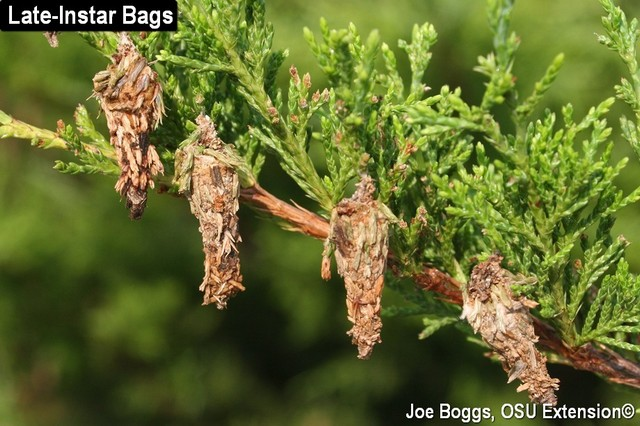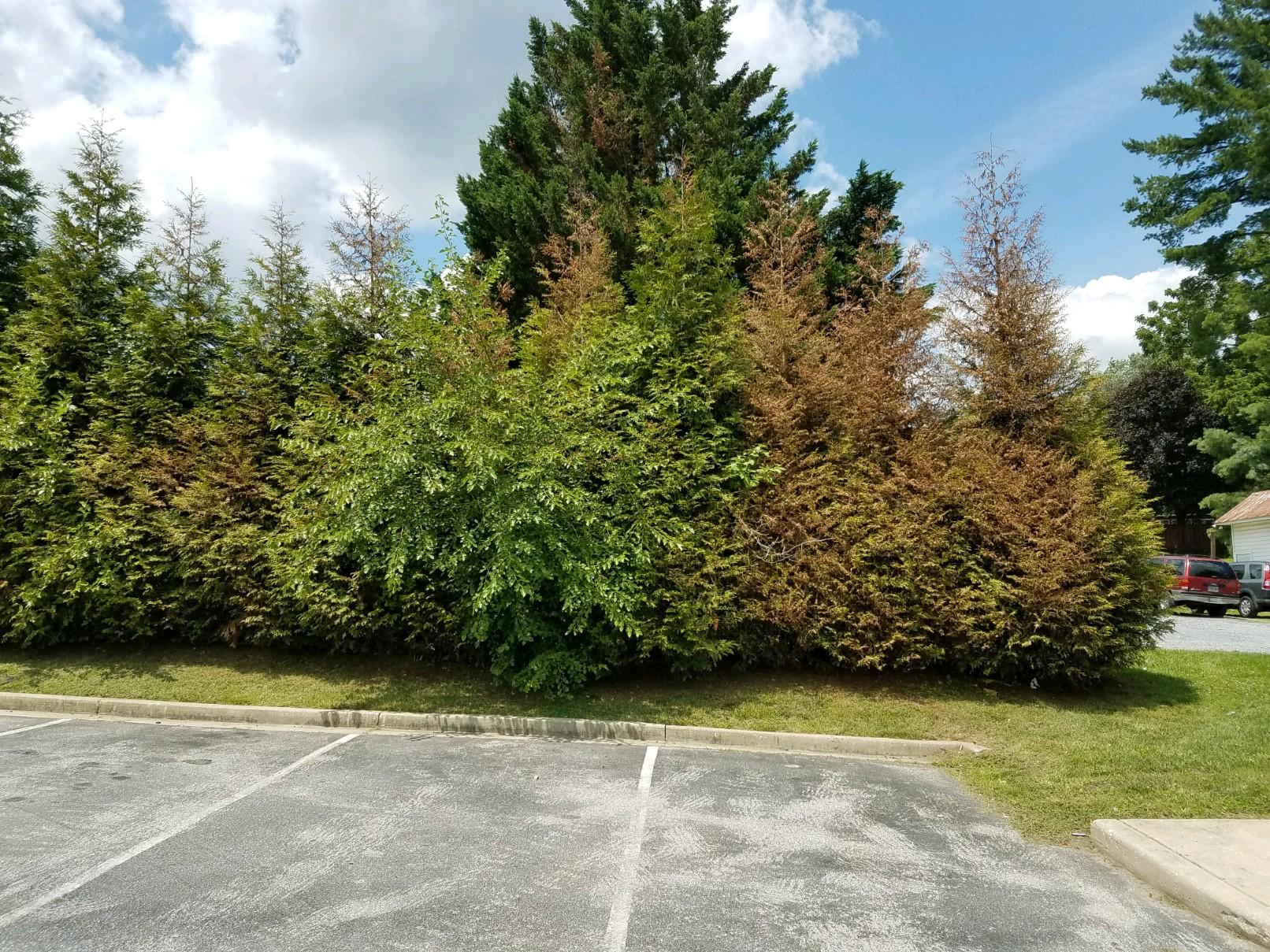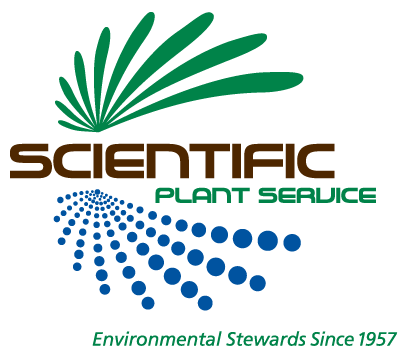
Learn how to get rid of a bagworm infestation.
Have you noticed any damage happening to your trees or evergreen privacy hedges? If the leaves are turning brown or the needles are falling off pine trees, you may have a bagworm infestation. Be sure to take a close look at your trees this July to look for damage and continue reading to learn a few effective tips for controlling a bagworm infestation.
Bagworm Life-cycle
Bagworm control starts with having an understanding of the worm, as treatment can only start during certain times in their lifecycle. The worm overwinters in the bag that was put there by last year’s females. The bag looks very similar to a small pine cone. Bagworms hatch in May and early June and begin eating plants around July and August and will start to construct a bag made up of silk and plant parts. This bag is very tough and protects the worm from predators. The worm continues to eat and move along the branches with its bag. These worms are very destructive and can defoliate a tree within a few weeks.
As we enter September and October, the female will release sex hormones to attract males and a female can lay over 500 eggs after mating. It is crucial to start bagworm control before this stage as the infestation will be much more difficult to handle.
Controlling Bagworms
 When it comes to organic ways to kill bagworms, you can go around and pick every sack off the trees, but remember that missing just one bag will likely result in 500 eggs surviving to re-infest the tree net year. You can also leave it to the birds to eat the worms, but this is only partially effective if you are dealing with an infestation.
When it comes to organic ways to kill bagworms, you can go around and pick every sack off the trees, but remember that missing just one bag will likely result in 500 eggs surviving to re-infest the tree net year. You can also leave it to the birds to eat the worms, but this is only partially effective if you are dealing with an infestation.
Instead, the best option is to use insecticides that are effective on bagworms and bagworm larvae. While this treatment is most effective in June when the worms are just beginning to emerge, you can continue to apply through July. By August, the bagworms are more resilient, and the insecticide will be less effective.
Scientific Plant Service Is Your Go-To Source In Landscape Healthcare
Scientific Plant Service, located in Baltimore, is a privately-owned corporation, chartered in Maryland in 1957 by Frank J. Burke. We started as a full-service Arborist specializing in the care of shade trees and ornamental shrubs, but today we are a lawn and total landscape care company that is a huge part of the community. From aquatic environments and snow management to deer and mole control, SPS has services tailored specifically for your lawn and landscape.
We offer services in Maryland, Washington DC, and Virginia, including Harford, Baltimore, Carroll, Frederick, Howard, Anne Arundel, Montgomery, Prince Georges, Talbot, Queen Anne’s, and Calvert counties in MD, as well as Loudoun County, Fairfax County, Arlington, Alexandria, and Falls Church in VA. For more information, contact us online, or call us at 410-321-0970. Be sure to follow us on Facebook, Twitter, LinkedIn, and Pinterest!

